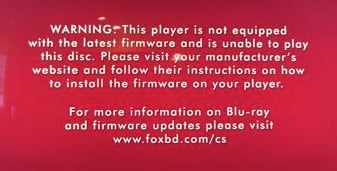Blu-ray Lawsuit vs Samsung
A consumer group charges that Samsung has knowingly sold defective Blu-ray players since June 2006 and is looking for $5 million in compensation.
Samsung sold lead plaintiff Bob McGovern a BD-P1200 last summer which has turned out to be incompatible with some Blu-ray disc titles. The plaintiff attributes the player's inability to playback Blu-ray movies to a "defective design and/or manufacture".
Attorneys have noted that the problems have caused many complaints against Samsung and other Blu-ray manufacturers. According to the suit, Samsung has verified that it doesn’t intend to provide any further firmware updates to fix this issue.
A few specific Blu-ray titles are known to have problems in various players (especially Samsung’s BD-P1000 and BD-P1200) including: The Day After Tomorrow and Fantastic Four: Rise of the Silver Surfer. Many Blu-ray players require regular firmware updates to make them compatible with newer Blu-ray discs.
It’ll come as a surprise to many consumers that simply taking home a Blu-ray player doesn’t mean you can start watching Blu-ray movies. A series of firmware updates are necessary to make the player compatible with newer movies. But what happens when the manufacturer refuses to provide firmware for new movie discs? You get a class action lawsuit against Samsung.
The trouble is probably related to BD+, the DRM (Digital Rights Management) intended to guard against copy protection. Silver Surfer uses a Blu-ray java virtual machine to add BD+ copy protection which is unique to Blu-ray. BD+ is an additional layer of copy protection on top of AACS copy protection already used by both competing formats, Blu-ray and HD DVD.
After AACS had been cracked last year, BD+ may have been rushed to appear on various movie discs. BD+ and its endless firmware updates have caused Blu-ray adopters serious aggravation and is a source of even further consumer confusion.
According to ArsTechnica, Paramount sided with HD DVD because its competitor Blu-ray wasn’t “market-ready”. However Steve Feldstein, Fox senior VP of marketing communications says problems with disc compatibility are clearly the manufactures fault.
"…consumers should lobby their hardware manufacturers to release firmware upgrades post haste" and that "the title was well-reviewed and playing well on updated players."
Navigate Samsung’s website and try to find firmware updates for the BD-P1200 or BD-P1000 and you’ll soon experience the frustrations of Samsung's customers.
How does a new high-def technology stand a chance at mainstream consumer acceptance when it doesn’t work out-of-the-box?
Samsung’s older player BD-P1000 and LG's BH100 also has compatibility issues with newer Blu-ray discs. I’ve personally had experience with Samsung’s BD-P1400 and BD-UP5000 and had to get firmware updates for compatibility to Live Free or Die Hard and 3:10 to Yuma. The UP5000 never quite learned how to playback Sunshine and I’m still waiting for a firmware update to fix it.
This could be the first in a series of lawsuits against Blu-ray manufacturers. The finger pointing has already begun between the studios and manufacturers. Perhaps Samsung made itself an easy target by being first to market with a disc player that supports an incomplete format.


